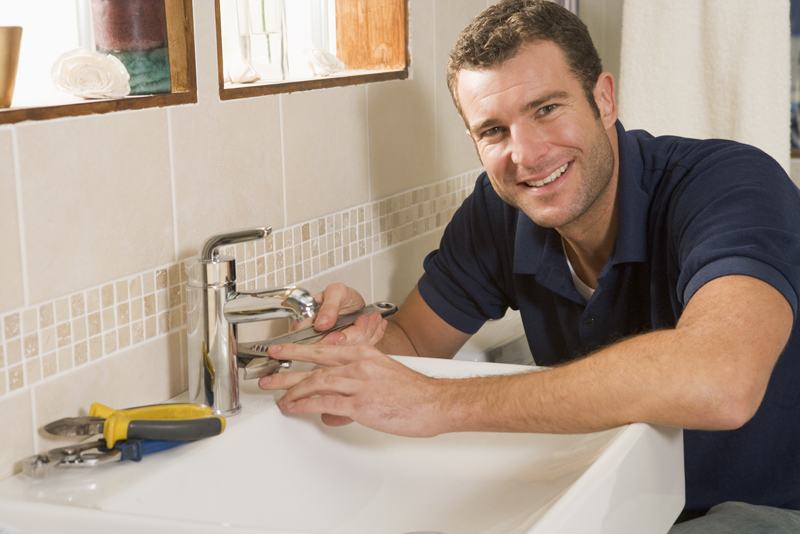When you purchase Intown Atlanta Real Estate, an important part of the process is getting a home inspection by a licensed home inspector. In this part of our Intown Atlanta Real Estate Buyers Guide, we look at the Inspection process.
What Is A Home Inspection?
Once you have negotiated a contract on your home or condo, it’s a pretty good idea to check under the hood! You know, like when you buy a used car, you want to take it to your OWN mechanic and tell you what, if anything is wrong with it. The same is true for a home or condo. We walked through the home as we were shopping, but we didn’t really get a chance to look under the hood. That is where the home inspector comes in.
You can choose your own, or consult our Team Page to get potential inspectors. You will want to be sure they are licensed and ASHI certified. (American Society of Home Inspectors) There are many, many home inspectors available to you in the Intown Atlanta real estate market. Some offer additional services such as a recall notification service and a warranty on their actual inspection!
 What Is Covered In A Home Inspection?
What Is Covered In A Home Inspection?
A home inspection will vary greatly in a single family home from that of a condo. Why? Well in a condo, you don’t have to inspection items like the foundation, the roof or the exterior of the building. Those are items that are not specifically your responsibility when living in a condo and are taken care of by the home owners association. (HOA). But, your inspector can check items like:
- Electrical – Inspection of the electrical panel, outlets and such to see that they are operational and up to building code.
- HVAC — The home inspector will test the overall operation of the system. There are standards regarding the air temperature that the system should blow, both hot and cold. Most home inspectors are NOT licensed HVAC contractors, so if an issue is identified by the home inspector, it might require an additional inspection.
- Plumbing — This inspection will check the operation of faucets, toilets, hot water heater and check for visible leaks. In a condo, the inspector does not have access inside the walls and can only look at what he has access to. However, in a home, there may be a basement area where additional pipes are exposed that can be inspected. It is still possible to find homes in the Atlanta area that are on a septic tank. In other words, the have their own system on the property and are not connected to a public sewer. This can be tricky and a buyer should be prepared for additional inspections (and costs) to make sure the septic system is functioning properly. This can be a very costly repair!
- Appliances — Again, by the home inspector checking the stove, dishwasher, refrigerator, etc., you can identify current or potential problems that may exist with these items.
What Happens After The Inspection?
 Once the home inspector has completed his inspection, he will provide both you (Buyer) and your agent (ME!) a copy of the report. We review the report and look at all of the items identified by the inspection that may need repair/replacement. I’ll review this list with you and together we will decide and rank in order of importance (and possibily cost) what we would like replaced/repaired by the Seller. This is all done with an amendment to your Purchase and Sale Agreement, called the Amendment To Address Concerns With Property.
Once the home inspector has completed his inspection, he will provide both you (Buyer) and your agent (ME!) a copy of the report. We review the report and look at all of the items identified by the inspection that may need repair/replacement. I’ll review this list with you and together we will decide and rank in order of importance (and possibily cost) what we would like replaced/repaired by the Seller. This is all done with an amendment to your Purchase and Sale Agreement, called the Amendment To Address Concerns With Property.
You may have heard from many people that the home inspector is the “deal killer!” While I would call that a bit harsh, it can be a point in the real estate purchase process where challenges come up. A Seller may not be willing to fix/repair any of the items we have requested. Or they may only want to addess part of the items. It’s a negotiation process indeed! Do they always move forward. Yes and No! It all depends on the willingness of BOTH the Buyer and the Seller to come to a mutual agreement. Sometimes that agreement may not be the actual repair or replacement of the items listed, but an agreed upon reduction to the contract sales price, or a price reduction in lieu of repairs.
I’m always confident that we will find the mutual ground needed to keep moving forward. But not always. If that happens, we will have structured your Purchase and Sale Agreement to give you the ability to terminate.
And we’ll go find you another perfect home!
Our next column will cover the final walk-through and …..yes…..Closing!
NOTE: You should also know about Home Warranties! What Is a Home Warranty?
